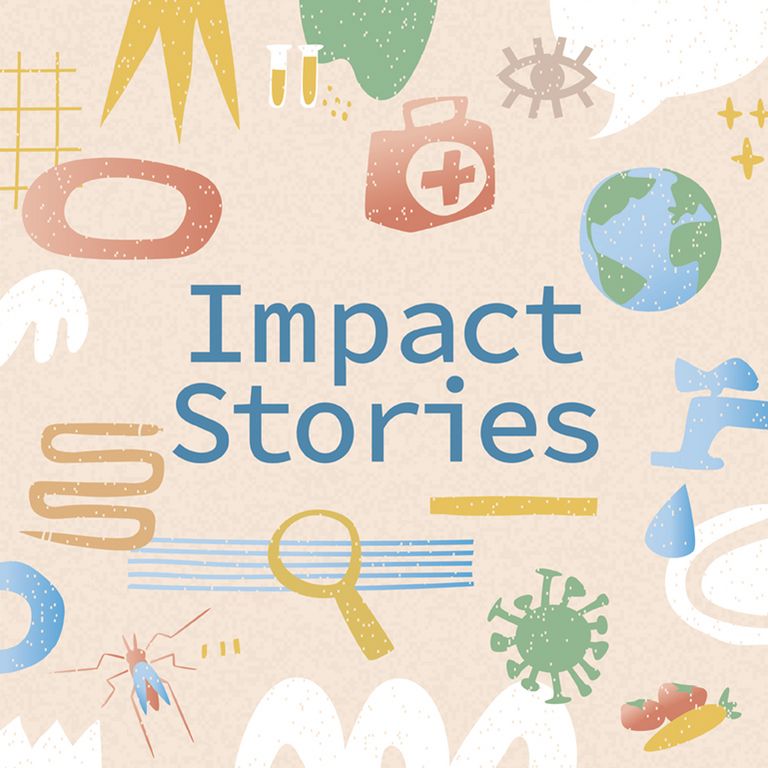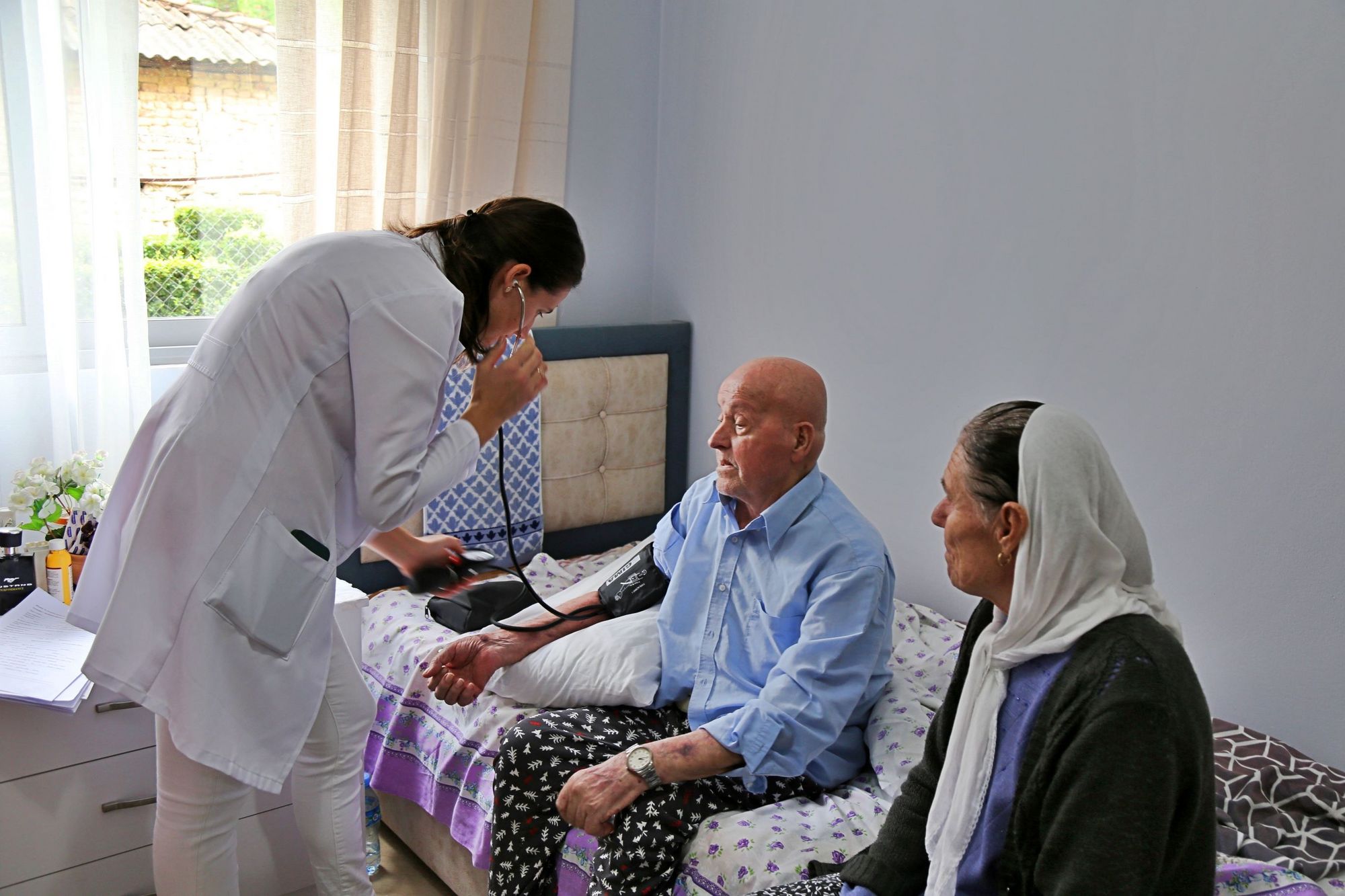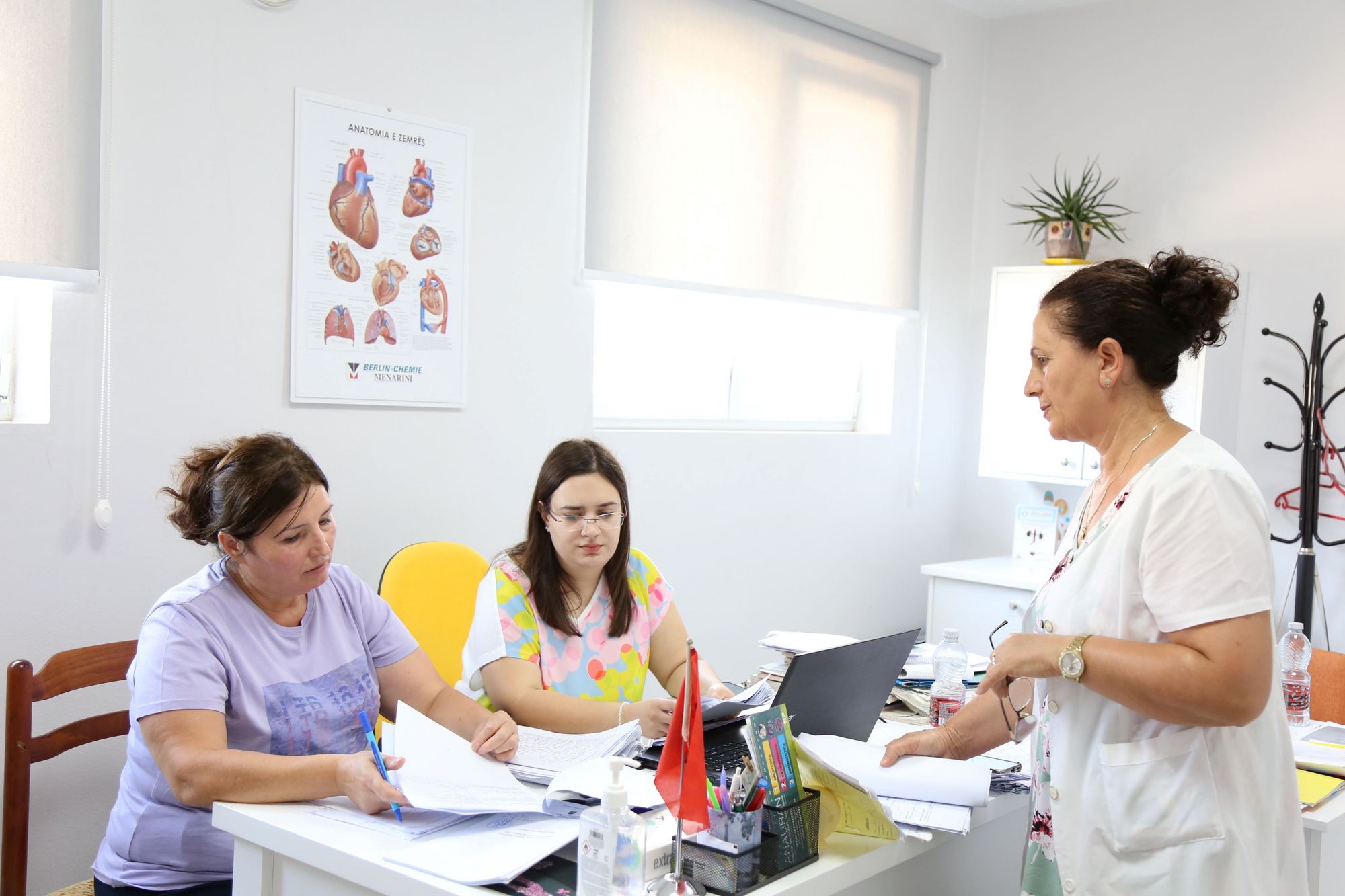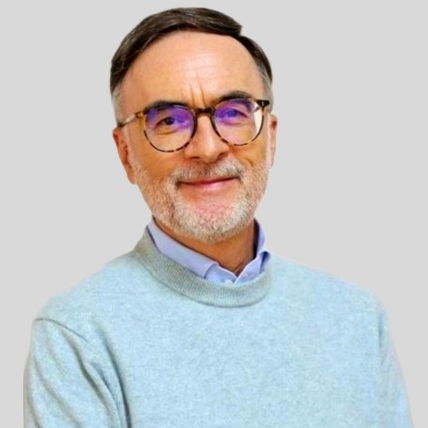

Can you tell us a little more about the project you are implementing?
Currently, I am working on the Health for All Project. The initiative has had a profound impact on improving primary healthcare services for the Albanian population, especially for vulnerable groups. Since the project – funded by the Swiss Agency for Development and Cooperation – was launched in 2015, two phases have already been implemented. The project has entered its third phase with a strategic focus on expanding interventions such as home care services to 87 new health centres introducing updated clinical protocols for non-communicable diseases, mental health, elderly care and advanced training for medical personnel.
One of the strengths of the project has been the home care service. In how many districts and health centres has this service been extended?
One of the standout interventions of the Health for All Project has been the introduction of home care services. Primary care had already included some home care for specific cases, such as emergencies, maternity care or child vaccinations.
We wanted to go further by developing an approach that took into account Albania’s demographic situation. This includes an ageing population and the challenges for the elderly living alone or the chronically ill who are unable to visit health centres. This group is offered home care not just when they need it but in a more systematic and planned way, which is a significant innovation in service delivery.
Initially, in 2021 and 2022, home care services were offered in nine pilot health centres in the Dibër and Fier regions. Following the pilot’s success, the initiative was extended to five additional territories of Local Units of Health Care in Shkodra, Durrës, Tirana, Elbasan, and Korça. Currently, we are working in other health centres in these territories, plus five new territories, including Kukës, Kavaja, Pogradec, etc. Today the HAP project operates in 17 territories of Local Units of Health Care.

What impact has this service had on medical personnel?
The uniqueness of this service lies in its proactive approach, which requires specially trained personnel. Traditionally, primary care nurses worked in health centres, waiting for patients to come to them. Our goal was to make the nurses more proactive, not just waiting for patients, but reaching out to patients by offering them home services.
A key aspect of this service is that it is primarily provided by nurses. Of course, family doctors are still involved and work with the nurses, but the nurses are the ones who provide the service directly. Our idea was to give nurses greater professional autonomy to perform clinical procedures independently. To achieve this, they need additional tools and equipment. We have worked to address both of these issues. Nurses received intensive training in advanced nursing procedures in a clinical simulation lab with special mannequins and all the tools needed to practice these procedures. We also prepared a special manual explaining all these procedures.
"Nurses received intensive training in advanced nursing procedures in a clinical simulation lab with special mannequins and all the tools needed to practice these procedures."

In addition to training, we have equipped the health centres where we operate with bags for doctors and nurses that contain the most essential tools for physical examinations. This was also to support another important intervention we are carrying out, which is the training of the family medicine team in the prevention and management of chronic non-communicable diseases such as diabetes, hypertension or dyslipidemia. A second set of materials needed for home care includes preclinical and clinical equipment such as wheelchairs, mattresses for patients with pressure sores, electrocardiograms, etc. This set of equipment has never existed in our health centres before and represents an innovation in primary health care.
In how many centres has this service been extended so far?
Over the past three years, we have directly supported 58 health centres, and we currently have 60 other centres that we will support. In total, our initiative will cover 120 centres, while the remaining facilities will be supported by the Ministry of Health with its own tools and resources.
How do you see the future of this service?
We hope that this model will continue to work and be extended to all health centres. Last year alone, around 9,000 home visits were made to 1,500 patients, providing essential care for people with multimorbidity or limited mobility. The figures are encouraging and we regularly conduct surveys to monitor progress before and after the implementation of the service. A number of surveys are currently underway and early data shows that the process is going well. However, challenges remain. There is still some resistance from staff because it is a new model and they are not used to it. There is a lack of confidence among nurses, who think it is risky to perform such procedures, even though our training aims to provide practical, not just theoretical skills.
"We hope that this model will continue to work and be extended to all health centres. Last year alone, around 9,000 home visits were made to 1,500 patients."
Other significant challenges include additional financial resources, as the introduction of new services requires adequate funding. The Ministry of Health and Social Protection is now looking at how to increase the budget for primary health care, including the Health Care Insurance Fund. I am optimistic because the success of the model so far gives us confidence in its potential, but it requires a lot of work and certainly, the staff must be motivated.
You can access the HAP brochure here

Dr. Besim Nuri is a public health expert and the Project Manager of the Health for All Project (HAP) since 2017. Dr. Nuri has had an outstanding career spanning more than three decades, during which he has held significant positions such as researcher at the Institute of Public Health in Tirana, Deputy Minister of Health in Albania, and health expert at the World Bank. With extensive international experience in countries such as Haiti, Gabon, Benin, Kazakhstan, Morocco, and others, Dr. Nuri has made valuable contributions to major organisations like the WHO, UNFPA, the World Bank, the European Observatory on Health Systems, and Swiss Cooperation.